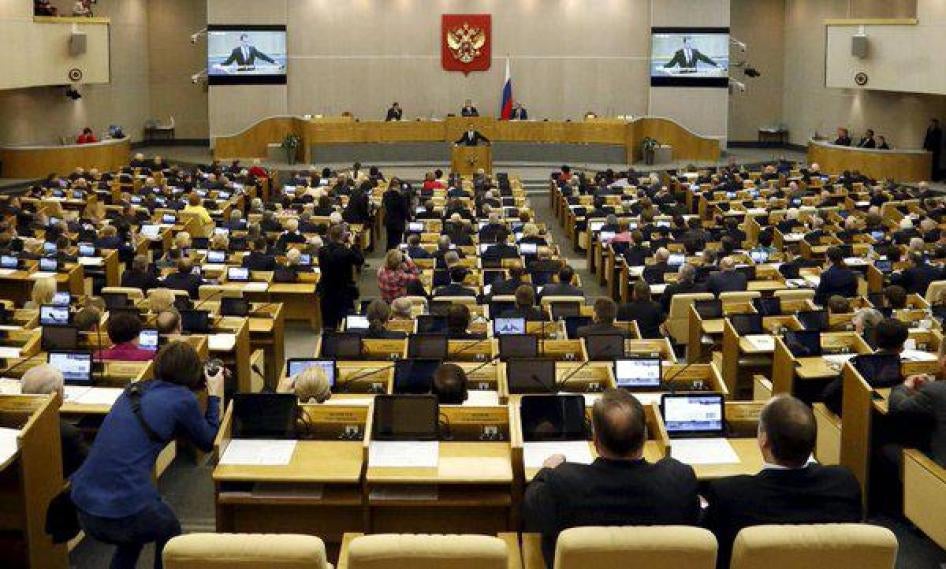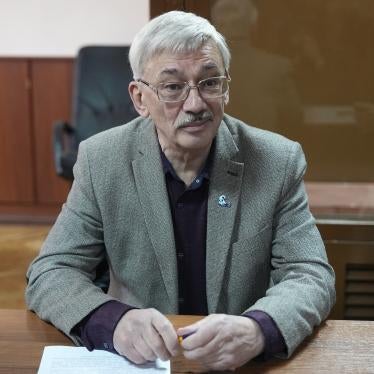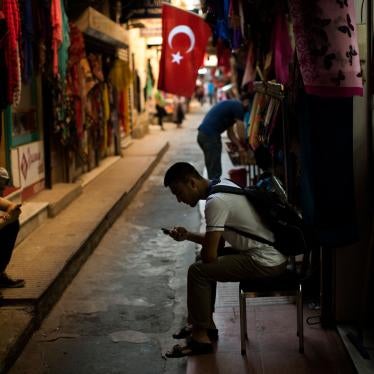(Moscow) – The Russian parliament adopted amendments to the “foreign agents” law on May 25, 2016, without promised improvements to relieve pressure on independent groups, Human Rights Watch said today. President Vladimir Putin should not sign the bill into law.
The bill amended the definition of “political activity,” one of two yardsticks Russia’s Justice Ministry uses to forcibly register nongovernmental organizations as “foreign agents”. In the original law, the term was loosely defined, opening the way to misinterpretation. But under the amendments, which define the term more extensively, almost any advocacy or research activity by an independent group constitutes political activity if it is aimed at somehow influencing the government or public opinion. That includes legal or policy analysis, monitoring the work of government institutions, public opinion surveys, research, and petitioning government officials.
“The amendments are an upgrade in name only,” said
Hugh Williamson, Europe and Central Asia director at Human Rights Watch. “The new definitions won’t reverse the violations of freedom of association and expression that this law creates. It is still easy for the government to arbitrarily restrict the work of independent groups and the Justice Ministry’s appetite to label groups ‘foreign agents’ won’t be reined in.”
Since 2012, the Russian government has used the “foreign agents” law to demonize independent groups that accept foreign funding and carry out public advocacy, especially those that in any way challenge government policies and actions.
In late 2015, President Putin
ordered the Justice Ministry to work with his administration on fine-tuning the definition of “political activity”, supposedly to reduce the scope for misinterpreting or arbitrarily enforcing the law. International observers following the issue had expressed hope that a new definition would narrow the list of activities that the courts and government bodies have deemed “political” over the past four years. Domestic and international rights groups hoped the new definition would limit it to activities directed at securing political office.
Russia’s Presidential Human Rights Council strongly criticized the amendments prepared by the Justice Ministry and
stated that President Putin’s order was not implemented. The council emphasized that the amendments should have more clearly defined the concept of “political activity”, but instead expanded it in a way that would further encumber the work of independent groups in the country.
Olga Gnezdilova, a prominent Russian human rights lawyer, told Human Rights Watch that, under the new amendments, any attempt by an independent group to influence public policy would be considered “political activity,” regardless of the group’s mandate. “If a charity, for instance, raises the issue of missing aid and publicly says the law needs to be changed to address it – this will automatically be considered political activity,” she said.
By early 2016, the Justice Ministry had labeled more than 100 organizations “foreign agents”, including dozens working for charitable purposes, environmental protection, and education. As a result, some organizations had to discontinue their work and close their doors. Among those that were shut down were St Petersburg's Anti-Discrimination Center Memorial and the Committee Against Torture.
“The new amendments do nothing good for independent groups or to halt the erosion of freedom of association in Russia,” Williamson said. “The Russian government should stop pretending they can ‘fix’ it and drop it altogether.”









